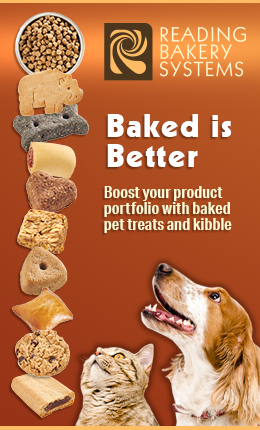Technology revolutionizing the market
Blockchain is being presented as the solution to track the food system from beginning to end.
Much is said these days about market disruption, and along with it, we can name tech innovation. However, when it comes to agricultural technology, few have managed to demonstrate its potential to improve safety, sustainability, and traceability, as Blockchain is proposing now.
Although the rise of this technology happened hand in hand with Bitcoin and other cryptocurrencies, it took a short time for companies to notice its potential for other uses and functions. Among them, we may remark on the possibilities and benefits it could bring to the pet and human food industries.
But what is Blockchain?
In simple words, Blockchain is a shared database that stores information in blocks with fixed storage capacities, linked by cryptography or code. New data forms new blocks, which are linked to the previous one in chronological order.
How does Blockchain impact the pet food industry?
The truth is that, to this day, we can name different reasons to adopt almost any technology, but if we talk specifically about Blockchain, we can surely number more than one! Indeed, we dare to say its great advantage is that data, once captured in the chain, is unalterable.
Currently, many pet food companies are focused on implementing Blockchain technology for agricultural tracking and final product delivery to know all information about the pet food production environment. Some examples are: field-level data mapping, crop data, traceability, sustainability, warehouse receipts, and order payments.
Blockchain benefits in food traceability
The traceability area is adapting and taking advantage of Blockchain benefits. As of today, we are seeing it being used to handle the volume and complexity of data involved, such as keeping track of supply chain data, origin field, ingredient expiration dates, food safety warranty, and carbon footprint measurements. Currently, it is estimated that 95% of Blockchain applications in development are focused on traceability.
The truth is that data ownership and business models based on related data are sensitive topics, surrounded by debates, at least until now. However, the interesting thing about this technology is that the information embodied in Blockchain is immovable and unchangeable. In this technology, as it is a decentralized system, there is no data "owner", as we have conceived the term until now. Otherwise, the property corresponds to everyone and no one at the same time, allowing all people to access the information in the chains. Thus, we could say that everyone is the owner of their own data, which, in turn, is shared freely and transparently.
Therefore, we understand that another great Blockchain benefit is the ease it brings to do more efficient, less risky, and less expensive international business.
It should be noted that the benefit is mutual: while companies obtain as much knowledge as possible about the history of their raw materials, consumers themselves, who may one day have the possibility of accessing data from the entire chain, could gain in-depth knowledge of where the pet food and their ingredients come from.
Due to its ability to collect data chronologically in a chain, and with total transparency, the industry recognizes that Blockchain can be especially beneficial in terms of traceability, not only because of the possibility of knowing the history of all matters and procedures, but also because it offers quantitative models to efficient detection of toxins, dioxins, polychlorinated biphenyls (PCBs), heavy metals, mycotoxins, Salmonella and other pathogenic bacteria. Sampling and automated testing, for example, can control final product contamination and adulteration, while creating a quantifiable record that can feed (and be nourished from) different companies.
This way, Blockchain technology application increases ingredient traceability from the raw material to the consumer's plate. In a fragmented industry such as the food supply chain, this technology not only helps store data but keeps track of past quality, which also adds credibility to suppliers.
Obstacles in Blockchain adoption
Blockchain is a relatively new technology for companies, and because it is in its initial phase, early adopters (those who are the first to implement it) will encounter some obstacles:
Investment: interest in technology needs protection regarding investment return, which is nowadays difficult to affirm.
Regulation: data protection regulations of each region or country may interfere with Blockchain use and expansion.
Standardization: to this day, there is still no global standard for Blockchain use in food value chains.
Quality assurance: Blockchain cannot guarantee product safety or quality, but it allows stakeholders to quickly identify problems and bad actors.
Scalability: the community continues to face the challenges of growing at scale.
Blockchain, a possible path to food traceability digitization
As new pet food production technologies create more efficiency opportunities for the entire supply chain, factories could take advantage of accumulated data to make their processes smarter. What matters is that regulated and shared data benefits consumers, at the end of the day, with more competitive pricing strategies and stronger analytical projections that result in better animal health, sustainability, and welfare.
Blockchain in food traceability digitization is in its initial stage. However, it hides a great potential for the food and agriculture sectors. Achieving end-to-end supply chain transparency will be a great goal and benefit for all supply chain members.
Source: All Pet Food Magazine
You could be interested: The Conscious Nutrition Era, or With Science Era, Now in Dogs and Cats
About author
María Candelaria CarbajoI’m a creative, interdisciplinary person, translator, and editor. I collaborate in producing and writing creative, high-impact projects to promote cultural exchange, transmit differential values, and connect with people/the audience. Likewise, I enjoy teamwork and joining forces, experiences, and knowledge to bring the world all the potential of those ideas that seek to impact people’s lives positively.

































